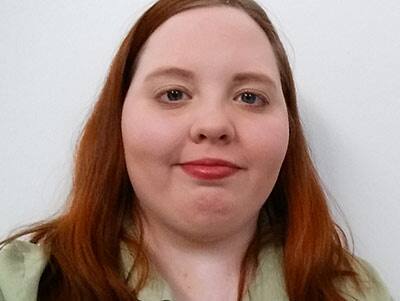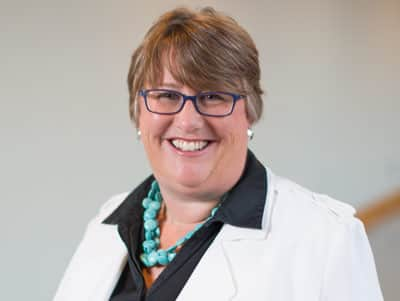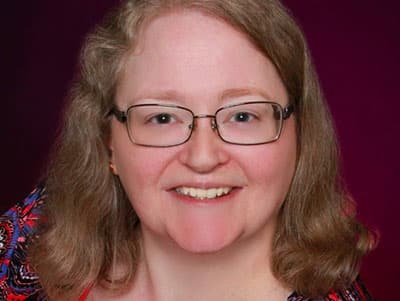National Novel Writing Month

Two years after being laid off from her full-time job as a technical writer, fledgling novelist Sara Gruen engaged in a challenge to write 50,000 words in 30 days as part of National Novel Writers Month, or NaNoWriMo. The result, "Water for Elephants," was published in 2006, spent 12 weeks on the New York Times Best Seller List - reaching as high as seventh - and earned countless accolades while also being adapted into a 2011 major motion picture starring Robert Pattinson, Reese Witherspoon and Christoph Waltz.
Established in 1999 with 21 aspiring novelists, NaNoWriMo was embraced by 384,126 participants in 2016. The number this year is likely even higher, including dozens of past and present Southern New Hampshire University (SNHU) students, who sought to follow Gruen's path to success.

Jade Pearson is one such writer who can now call herself a novelist. Though she established a NaNoWriMo account five years ago, she neglected the challenge until this year, when she became a NaNoWriMo winner, meaning she completed the goal of 50,000 words written.
"This year is the first November since I switched to a creative writing major (at SNHU), and I felt like competing in NaNo was the first big leap to getting over my near-crippling fear of rejection and failure," she said.
Similarly, Amy Stevens, vice president of Academic Resources and Communication at SNHU, said NaNoWriMo presented her with a much-needed confidence builder as she embarked on the school's new online MFA in Creative Writing program.
 "(NaNoWriMo) was a bucket list item, but one I never really thought I would get to," she said. "However, this spring I decided to enroll in our MFA program and suddenly had a crisis of confidence. Could I even write fiction? So I started small, with little scenes and snippets where I'd free write for 20 or 30 minutes. I found I really liked the experience and making the time became the highlight of my day."
"(NaNoWriMo) was a bucket list item, but one I never really thought I would get to," she said. "However, this spring I decided to enroll in our MFA program and suddenly had a crisis of confidence. Could I even write fiction? So I started small, with little scenes and snippets where I'd free write for 20 or 30 minutes. I found I really liked the experience and making the time became the highlight of my day."
The project is geared to do just that, helping those struggling to find the time, motivation or confidence to write a novel by challenging them to pen 50,000 words between 12 a.m. on Nov 1 and 11:59 p.m. on Nov. 30 each year.
"There is nothing like the feeling of creativity humming through you," said Amy Burinda, Pearson's peer in the online bachelor's in creative writing and English program. "As they say at the NaNoWriMo website, after you get done you will be able to brag to your friends and family that you just completed a book. Trust me; they will look at you as if you have superpowers."
A Head-on Approach to the Challenge
Of course, with every superpower comes an adversity to overcome. For Burinda, who has become an annual NaNoWriMo winner, each win carries added significance.
"I'm dyslexic," she said. "More than that, when I was a child, dyslexia was seen as laziness or a behavior problem. I always told stories to myself, but it wasn't until I learned how to type that I was able to express what I saw in my head."
Burinda soon discovered many bestselling authors have also overcome dyslexia. Still, she said it's been a struggle to find the right tools to make writing comfortable. Many of those techniques she's developed through NaNoWriMo and her writing groups.
"The November NaNoWriMo is like the sporting event of the year for us," she said.
For Pearson and Stevens, participating for the first time, NaNoWriMo's greatest benefit came through the accomplishment itself.
"It was painful, of course, because you have to drag every word kicking and screaming onto the page and turn off the part of your brain that wants to backspace," said Pearson. "I did, however, write an amazing 57,000 words in 30 days, which is more words than I have ever written for a single project, and I'm only about a third of the way finished with the draft."
"For an aspiring writer, the discipline I gained from this experience was profound," Stevens said. "I think it prepared me for how to think about fitting the MFA into my life and it gave me a safe place to explore, play and practice. This was the perfect warm-up experience to prepare me for the program."
Setup for Success
Burinda said her education has also provided many unique skills, which she has utilized to become a more polished writer.
 "The more I learn about different cultures, history, science, philosophy and all of the other excellent subjects that SNHU offers, the more I grow as a person and as a citizen of the world," Burinda said. "That gives me a greater pool of knowledge to draw on as a writer. I can create more diverse worlds and characters."
"The more I learn about different cultures, history, science, philosophy and all of the other excellent subjects that SNHU offers, the more I grow as a person and as a citizen of the world," Burinda said. "That gives me a greater pool of knowledge to draw on as a writer. I can create more diverse worlds and characters."
"What I have gained the most from my time with SNHU is a sense of accomplishment and fearlessness," she said. "I start every term with a little knot of fear in my stomach, but I dive in anyway. At the end of that term, I almost always look back with a sense of awe and wonder that I made it through. If I can make it through Non-Western Philosophy, I can write about the imaginary people knocking around in my head without any fear."
Pearson agreed, saying her NaNoWriMo experience went hand-in-hand with her coursework.
"One of my classes had us write a character bio, and I used the main character of the book I worked on for NaNo," she said. "I learned a lot about my character from that bio. Some of it I cut and rearranged as the story unfolded over November, but it helped me develop a more three-dimensional character."
Balancing Act
Of course, there is a method behind the madness of NaNoWriMo word count.
"From the perspective of a student, NaNoWriMo will teach you time and project management," said Burinda. "It will take you from the conception of a project to planning to execution, and then completion. It's one thing to do a significant project for a class when an instructor is pulling you along; it's another thing when it is just you doing it for yourself."
Stevens said the trick is to break the challenge down into more reasonable daily goals.
"I went onto the website for NaNoWriMo and saw how people prepared; 50,000 words is daunting," she said. "But I saw someone who did some math and found that works out to be 1,666 words a day. That felt manageable. As long as I committed to writing every day, I could most likely hit that target. The other advice I held onto, like a security blanket, is that no one says this has to be a perfect novel. I relished the fact that I wrote with spelling errors and horrible grammar and unfinished scenes. There are clichés and huge holes in the plot and all of that is perfectly OK."
Participants aren't allowed to begin writing before Nov. 1, but NaNoWriMo prep is available for those planning to tackle the challenge. Resources include regional planning events, webcasts and an online prep library.
Once the writing process begins, writers earn badges for achieving certain milestones, and also receive "pep-talks" from past participants and well-known writers. Current participants are also encouraged to engage with "writing buddies" and in online forums to help keep the motivational juices flowing.
"It wasn't just my characters or my story that developed over the course of NaNo. I learned more about myself and my own capabilities, too," said Pearson. "There was a weekend where I fell behind in my word count because I hadn't properly managed my time for school projects and spent the whole weekend on homework. The following Monday, I scheduled out a block of time at a coffee shop and I wrote 10,000 words in one sitting. I had no idea I was capable of something like that."
Across the board, the women agreed that the process not only takes personal commitment, but also loving sacrifice from those around them.
"I was fortunate enough to be surrounded by people who encouraged me, a family who did the dishes every night so I could go write, and a loving editor-husband who has begun working through my comma splices and run-on sentences," said Stevens. "Whether you are doing NaNoWriMo or starting a degree program, it is essential to find a tribe of people who will support you, even if they have no idea what it is you are actually doing. We know that successful writers and students seek support and I was thrilled the SNHU community was there."
Dream Catching
There is no limit to the number of NaNoWriMo winners, though some sponsors offer prizes, incentives and discounts for NaNoWriMo winners.
Many, like Burinda, have participated in NaNoWriMo multiple times and continue to come back each year.
"I use NaNoWriMo as a month to stretch my wings and write something I have never thought about writing before," she said. "This time around I wrote the script for a graphic novel."
Others, like Pearson, concede their path to NaNoWriMo was a long and twisted road that led to and through the creative writing and English program, where she's on track to earn her bachelor's degree in December of 2018.
"I spent a lot of time, more time than I like to admit, denying that I was a writer," said Pearson. "I studied more 'practical' subjects in an attempt to get a job in a field that had better prospects. I bounced around from biology to statistics to business management and finance before I finally broke down and accepted the fact that I wanted nothing more than to be a writer."
"I've worked for self-publishing companies as an editor, ghostwriter, and marketing copywriter," she said, "but seeing my own writing in print has always been the dream."
Ryan O'Connor works in higher education marketing at Southern New Hampshire University. Follow him on Twitter @NHRyGuy or connect on LinkedIn.
Explore more content like this article

How Celebrating Small Wins Can Make a Big Difference

Heart, Hope and Some Help Along the Way: SNHU’s Fall Class of 2025

Old Time Charm, Big Time Fun at SNHU’s Homecoming
About Southern New Hampshire University

SNHU is a nonprofit, accredited university with a mission to make high-quality education more accessible and affordable for everyone.
Founded in 1932, and online since 1995, we’ve helped countless students reach their goals with flexible, career-focused programs. Our 300-acre campus in Manchester, NH is home to over 3,000 students, and we serve over 135,000 students online. Visit our about SNHU page to learn more about our mission, accreditations, leadership team, national recognitions and awards.

